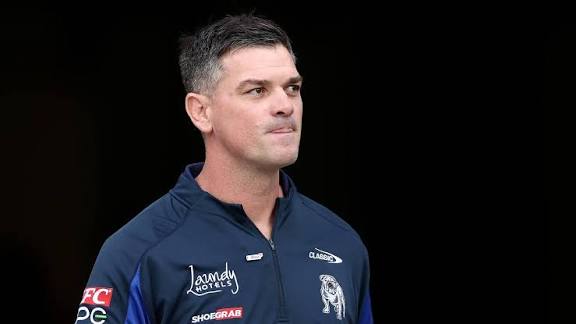
For touching a player, Canterbury Bankstown Bulldogs head coach Cameron Ciraldo should be suspended for three months….
The rugby league world was rocked today by shocking news surrounding Cameron Ciraldo, the head coach of the Canterbury Bankstown Bulldogs. Reports have emerged that Ciraldo has come under serious scrutiny for an incident in which he touched a player inappropriately during a team activity. While the full details of the event are still being examined, many within the league are calling for swift and decisive action. A growing consensus suggests that a three-month suspension would be the most appropriate course of action, both as a punishment and as a signal to others in leadership positions.

The Bulldogs are a proud and historic club within the NRL. Their fans expect not only strong performances on the field, but also professional conduct off it. Coaches carry a special responsibility as mentors, authority figures, and protectors of their players. When that boundary is crossed—even in ways that might appear minor to some—the damage to trust, culture, and the club’s reputation can be immense. For this reason, rugby league governing bodies cannot afford to take the matter lightly.
Critics argue that Ciraldo’s actions, regardless of intent, have breached the professional boundaries that must exist between a coach and his players. A physical incident in which a coach touches a player outside the expected context of training drills or instruction sets off red flags about power imbalance and respect. In modern professional sports, where player welfare and workplace integrity are constantly emphasized, such breaches must be dealt with firmly.
A three-month suspension is being put forward not only as a disciplinary measure, but also as a safeguard. Suspending Ciraldo would allow time for a thorough investigation, while also sending a message to other coaches and team staff across the NRL that inappropriate physical interactions have no place in the game. A temporary removal also ensures the player involved—and the rest of the squad—can continue training and competing in a safe environment, free from distractions or unease.
From the Bulldogs’ perspective, the timing of this development could hardly be worse. The club is striving to rebuild its identity and reestablish itself as a genuine contender in the NRL. Losing their head coach for three months could disrupt game plans and unsettle the roster. Yet, protecting the integrity of the club and the welfare of the players is ultimately more important than any short-term competitive disadvantage. A suspension could also give the Bulldogs’ assistant coaches a chance to step up and provide stability while the matter is resolved.
Beyond the Bulldogs, this case carries significant implications for rugby league as a whole. Sports organizations worldwide are under increasing pressure to uphold standards of professionalism, transparency, and safety. If the NRL fails to act strongly, it risks criticism for tolerating inappropriate behavior at the expense of its athletes. On the other hand, decisive action against Ciraldo would reinforce the league’s commitment to player welfare and cultural change.
Ultimately, Cameron Ciraldo’s future as Bulldogs coach will depend on the outcome of ongoing investigations. But one thing is already clear: for touching a player in a way deemed unacceptable, the minimum response should be a three-month suspension. Anything less risks undermining the trust that players, fans, and the broader public place in rugby league as a professional sport.
Leave a Reply